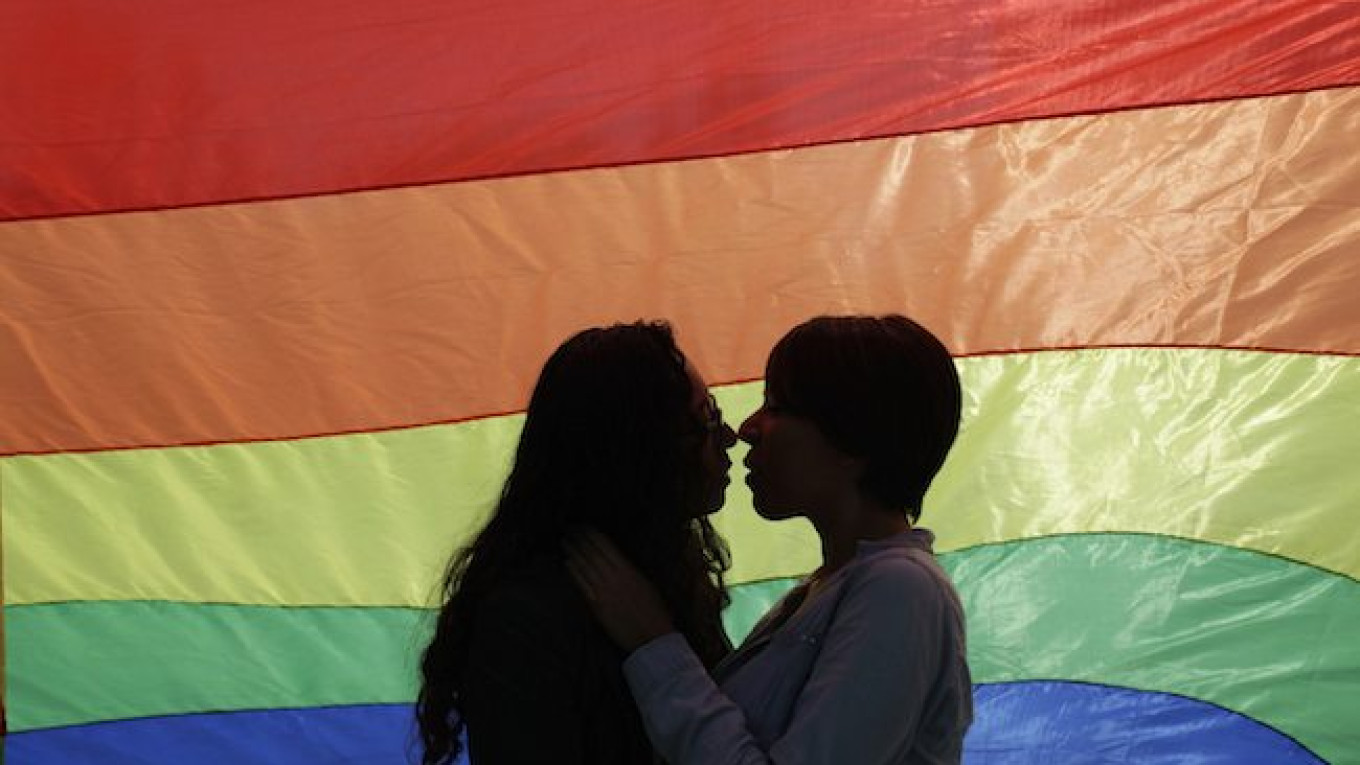This article was originally published by EurasiaNet.org.
Georgian Prime Minister Giorgi Kvirikashvili has announced a campaign to change Georgia's constitution to specify that weddings are strictly between men and women only.
In a parliamentary election year in a socially conservative, marriage-centric country, the idea, perhaps, comes as no surprise.
In a March 7 briefing, Kvirikashvili stated that, while "discrimination in any form is unacceptable," the country's ruling Georgian Dream coalition has decided that "the defense of such an important value as marriage should be guaranteed at the level of the country's constitution."
MP Zviad Dzidziguri, chairperson of the coalition's Conservative Party, got down more to brass tacks. "Those people and forces, who state that we will go over in this direction [toward same-sex marriage], that someone will force us to do something, will have every single foundation stripped out from under them."
On March 8, Justice Minister Tea Tsulukiani also signed on to the initiative, telling Imedi TV news that the format for marriages in her ministry's Houses of Justice "should be strengthened."
A date for parliamentary hearings on the proposed constitutional change has not yet been announced. With a majority of parliament's 150 seats, the Georgian Dream, though, in theory should be able to secure the reform without a hitch.
No widespread movement exists in Georgia in support of same-sex marriage. Popular concerns expressed in 2014 that tighter ties with the European Union would mean the country would have to allow such unions have faded into the background amidst other controversies.
Strangely, the loudest sounds of battle against a constitutional provision for heterosexual marriage have emerged from within the Georgian Dream itself.
Parliamentary Speaker Davit Usupashvili, a leader of the coalition's Republican Party, warned on Tuesday that the proposal could prove "a political minefield, a step toward a political trap . . ."
Defining marriage, he continued, is not a task for politicians, but for a "moral and ethical" discussion, and "is not in the national interest" when decisions on "a lot of important topics" are pending.
He claimed that the Republicans, who do not support same-sex marriage, did not attend the coalition meeting at which the proposal for a constitutional definition of marriage was discussed.
Conceivably, more controversial discussions could be in the offing. Speculation has run rife in recent weeks that the ruling coalition is on the verge of collapse, supposedly pulled apart by personal as well as political differences. The claims have been denied, but any debate over defining marriage in the constitution could revive them.
Other critics are likely to claim that the Georgian Orthodox Church, the country's most influential opponent of same-sex marriage, had a hand in the government's initiative. The Church has not yet commented about the measure.
The proposal also raises a question about the fate of a controversial petition filed earlier this year by lawyer Giorgi Tatishvili for the Constitutional Court to allow same-sex marriages. Some LGBT activists have condemned the measure, alleging that the Church, which called for Tatishvili to have a bodyguard, may intend to use the suit to stir up further hostility toward the country's tiny LGBT community.
The Constitutional Court has not yet scheduled a hearing for Tatishvili's petition, and could not be reached for further information. All of Georgia's public offices were closed on March 8 for International Women's Day.
A Message from The Moscow Times:
Dear readers,
We are facing unprecedented challenges. Russia's Prosecutor General's Office has designated The Moscow Times as an "undesirable" organization, criminalizing our work and putting our staff at risk of prosecution. This follows our earlier unjust labeling as a "foreign agent."
These actions are direct attempts to silence independent journalism in Russia. The authorities claim our work "discredits the decisions of the Russian leadership." We see things differently: we strive to provide accurate, unbiased reporting on Russia.
We, the journalists of The Moscow Times, refuse to be silenced. But to continue our work, we need your help.
Your support, no matter how small, makes a world of difference. If you can, please support us monthly starting from just $2. It's quick to set up, and every contribution makes a significant impact.
By supporting The Moscow Times, you're defending open, independent journalism in the face of repression. Thank you for standing with us.
Remind me later.


